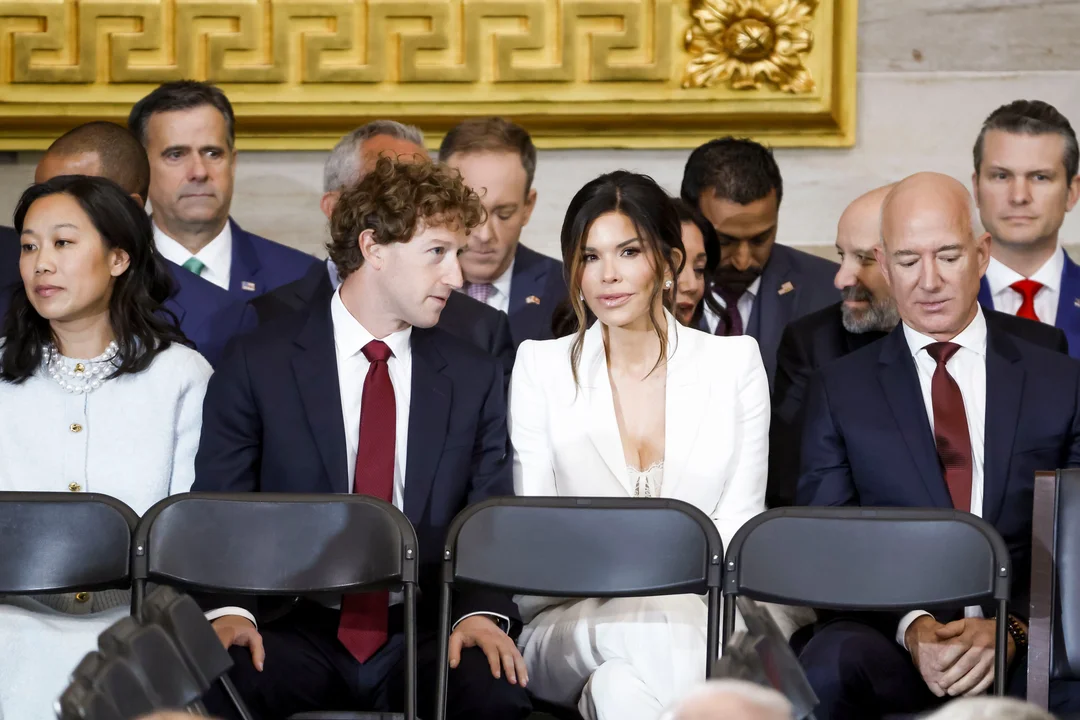
Silicon Valley’s Billion-Dollar Gamble On Trump Backfires Amid Tariff Turmoil
In an extraordinary twist of fortunes, America's most powerful tech moguls — who poured millions into President Donald Trump’s second inauguration, hoping for favorable policies and regulatory relief — are now facing staggering financial losses as his aggressive tariffs and unpredictable economic landscape send shockwaves through Silicon Valley.
From donations at Mar-a-Lago gatherings to hopes of influencing tech-friendly policy, industry titans like Elon Musk, Mark Zuckerberg, Tim Cook, Sundar Pichai, and Jeff Bezos cultivated close ties with Trump. Instead of reaping benefits, their empires collectively lost an eye-popping $1.8 trillion in market value in just the first quarter of 2025, underscoring the risks of intertwining business and politics in an uncertain global economy.

The crux of these losses ties directly to President Trump’s sweeping tariff offensive. Despite a recent 90-day pause on many levies, the administration doubled down on China — pushing tariffs up from 104% to a staggering 125% — citing "lack of respect." This escalation threatens complex supply chains and has sent markets on a jagged decline, particularly the tech-heavy Nasdaq, down over 21% since January.
Elon Musk endured the sharpest personal blow, with his net worth plunging by $143 billion amid Tesla’s stock collapsing 28%. Despite Musk’s $290 million pro-Trump donations and a prominent advisory role within the government, Tesla’s global supply chain remains vulnerable to tariff shocks, exacerbating competition pressures and investor apprehension.
Meta’s Mark Zuckerberg, who had repositioned his company’s leadership to be more Trump-aligned and invested $1 million in inaugural festivities, has lost $26.5 billion. Meta shares dipped over 2%, reversing previous AI-driven gains. Amazon’s Jeff Bezos, another million-dollar donor and early Trump supporter post-election, watched his fortune shrink by $47 billion as Amazon stock fell by 13%.
Google’s market capitalization shrank by nearly $387 billion following a 16.2% drop, despite CEO Sundar Pichai’s personal overtures and a sizable inaugural donation. Meanwhile, Apple — which pledged a record $500 billion US investment and whose CEO Tim Cook also donated directly — faced perhaps the most severe operational hit. Mass production still centered in China leaves Apple exposed; its stock tumbled almost 19%, wiping out $684 billion in value.

Wedbush analyst Dan Ives characterized the sweeping tariffs as an "Armageddon" for the industry, noting, "this makes the tech investing landscape the most difficult I have seen in 25 years." Moody’s echoed that no technology subsector will be spared from damage, warning of up to 25% earnings cuts if instability persists.
Ironically, the billions spent courting Trump — from multi-million-dollar inauguration donations across Apple, Google, Meta, Amazon, Microsoft, and OpenAI to hosting glamorous parties and promising domestic investments — have failed to sway White House policy away from protectionism. Instead, tech firms face squeezed margins, higher consumer prices, talent shortages amid immigration curbs, and mounting regulatory threats, including renewed antitrust battles.
While the pursuit of influence represented a drastic shift from Silicon Valley’s openly hostile stance during Trump’s first term, it now appears to have yielded little tangible benefit. The gamble on proximity to power has, for now, boomeranged disastrously, raising profound questions about corporate engagement in polarized politics — and how far CEOs should go to chase favor.
As markets brace for prolonged volatility, the episode leaves a cautionary tale for business leaders worldwide: political alliances may promise short-term advocacy but carry unpredictable long-term risks.
Will tech giants double down on U.S. manufacturing, or will economic realities force a strategic retreat? Can closer ties to government ever truly safeguard corporate interests in a volatile global landscape? Share your thoughts on this unprecedented collision of wealth, politics, and global markets below.